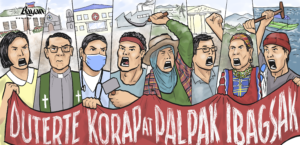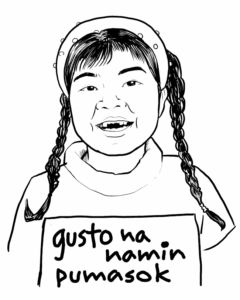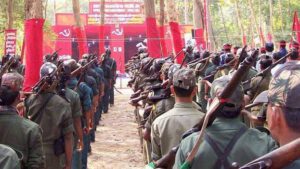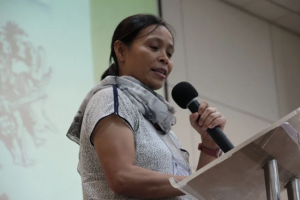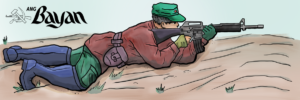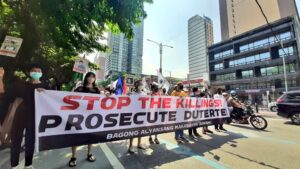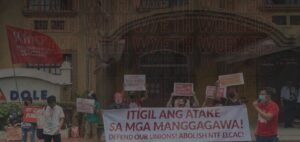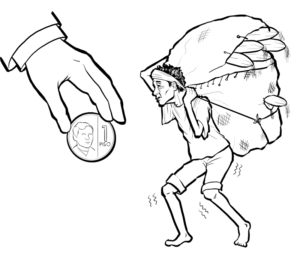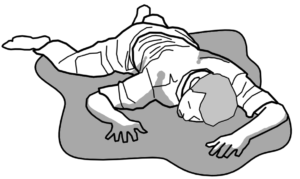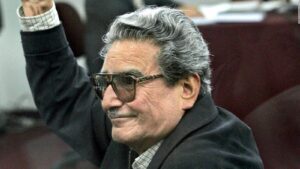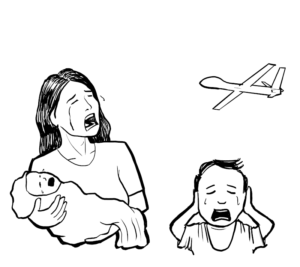The unforgivable crimes of the Marcos dictatorship


Never again to martial law! This is the united battlecry of the people against attempts of the family of the late dictator Ferdinand Marcos to revise history and return to Malacañang. The Marcos family is shamelessly clinging to power in connivance with the equally detestable Duterte family.
This clamor resounded further with the approach of the 49th anniversary of the imposition of martial law on September 21.
The latest of these attempts of historical revisionism was a YouTube interview with former senator and vice-presidential loser Ferdinand “Bongbong” Marcos, Jr. about the so called “greatest lesson” he learned from his father. The interview drew flak as it attempted to portray the former dictator as a good man.
Martial law survivors condemned the interview which was guised as “neutral.” The Martial Law Museum of the Ateneo de Manila University also criticized the lies of the younger Marcos.
Currently, the Marcoses hold several high positions in the bureaucracy. One is currently a senator while another is a governor. Bongbong Marcos has more than welcomed the chance to run as Sara Duterte’s vice-president. as vice president of Sara Duterte. His son is also set to run as congressman.
Martial law is remembered as a dark chapter in Philippine history marked by suppression of civil rights, extrajudicial killings, enforced disappearances, media repression, economic downfall and many others. The period touted as “golden years” by the Marcoses and dictator-wannabes like Duterte, is actually an “era of impunity.”
Data by the Amnesty International indicate that approximately 70,000 individuals suffered in military stockades, while 34,000 were tortured and 3,200 killed by state forces from 1972 to 1981 alone. Many others cases of violations perpetrated by state forces were unreported. The Marcos dictatorship was toppled in a popular uprising in 1986.
The Samahan ng mga Ex-Detainees Laban sa Detensyon at Aresto condemned with utmost rage and condemnation the Marcoses’ attempts of historical revisionism. “For us who were among those who challenged his fascist reign, Marcos’ birth date reminds us of the countless human rights violations and massive plunder that his regime had committed,” said Danilo dela Fuente, vice chairperson and spokesperson of the group.
He added that “the nation’s coffers were also emptied and the national debt ballooned due to his family’s lavish lifestyle and his cronies’ corruption. His evil shadow still haunts us to this day.” Government debt is expected to reach ₱13 trillion (equivalent to a debt per capita of ₱100,000) by the end of Duterte’s term in 2022.
According to Ibon Foundation, the “golden years” of the Philippines under martial law is a myth. The Philippines was among the weakest economies in Southeast Asia from 1965 to 1986. It is untrue that the Philippines was the most developed economy in the region next to Japan in 1965, but was in fact the fifth to last among other countries. In 1986, the Philippine economy ranked 11th in Asia. According to Ibon Foundation, Marcos devastated the local economy after implementing the policies of neoliberal globalization in the 1980s.
Bonifacio Ilagan, dramatist, former political detainee and one of the convenors of the Campaign Against the Return of the Marcoses and Martial Law said: “The bottom line is that Duterte and Marcos’s legacy are these: crimes against the Filipino people and humanity and world class plunder and thievery. If we will not stop it, Duterte will definitely surpass Marcos’s record.”

